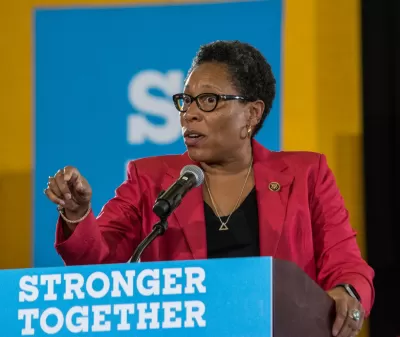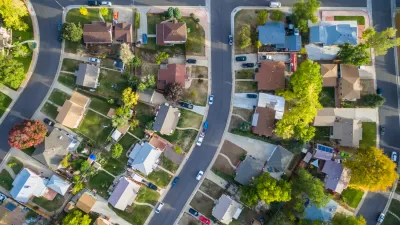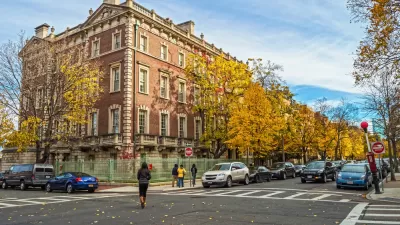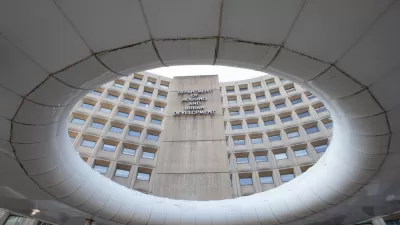The Affirmatively Furthering Fair Housing rule is back, but with one critical change that seems to respond to complaints used by Trump administration officials to rescind the rule in 2020.

Tracy Jan reports:
Nearly a year after the Trump administration replaced an Obama-era fair housing rule that critics decried as “burdensome” and that President Donald Trump alleged would “abolish” suburbs, President Biden’s housing department is restoring the requirement that communities take steps to reduce racial segregation or risk losing federal funds.
The Biden administration proposed the rule change back in April.
The reinstated Affirmatively Furthering Fair Housing (AFFH) rule will have significant differences from the original version crafted by the Obama administration. A mandate that "communities undergo an extensive analysis of local barriers to integration and submit plans to dismantle them to the Department of Housing and Urban Development" has been nixed, explains Tran. The Biden administration justified the change by describing the assessment requirement as "unnecessarily burdensome," echoing former HUD Secretary Ben Carson's criticism of the AFFH.
Jonathan Zasloff—who has criticized the AFFH as implemented by the Obama administration as ineffective in an article for Planetizen in August 2020—is quoted in the article criticizing the Biden administration's changes to the AFFH rule.
“This doesn’t reverse the damage of the Trump administration,” said Jonathan Zasloff, a professor who teaches housing discrimination at UCLA School of Law. “The entire point of the 2015 rule was to have a standard data set. What gets measured gets dealt with.”
According to the article, local jurisdictions "must still maintain records of the actions they are taking to promote fair housing, even if they are not required to submit them."

Maui's Vacation Rental Debate Turns Ugly
Verbal attacks, misinformation campaigns and fistfights plague a high-stakes debate to convert thousands of vacation rentals into long-term housing.

Planetizen Federal Action Tracker
A weekly monitor of how Trump’s orders and actions are impacting planners and planning in America.

In Urban Planning, AI Prompting Could be the New Design Thinking
Creativity has long been key to great urban design. What if we see AI as our new creative partner?

Pedestrian Deaths Drop, Remain Twice as High as in 2009
Fatalities declined by 4 percent in 2024, but the U.S. is still nowhere close to ‘Vision Zero.’

King County Supportive Housing Program Offers Hope for Unhoused Residents
The county is taking a ‘Housing First’ approach that prioritizes getting people into housing, then offering wraparound supportive services.

Researchers Use AI to Get Clearer Picture of US Housing
Analysts are using artificial intelligence to supercharge their research by allowing them to comb through data faster. Though these AI tools can be error prone, they save time and housing researchers are optimistic about the future.
Urban Design for Planners 1: Software Tools
This six-course series explores essential urban design concepts using open source software and equips planners with the tools they need to participate fully in the urban design process.
Planning for Universal Design
Learn the tools for implementing Universal Design in planning regulations.
planning NEXT
Appalachian Highlands Housing Partners
Mpact (founded as Rail~Volution)
City of Camden Redevelopment Agency
City of Astoria
City of Portland
City of Laramie





























